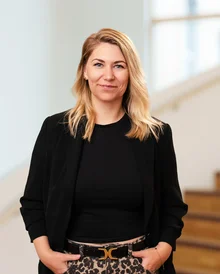How can professional and dignified care succeed in the coronavirus autumn?
Expert from Witten/Herdecke University recommends a stronger focus on the care situation in Germany for the coming coronavirus autumn.

The coronavirus debate is back and concerns about the expected rise in infection rates in autumn 2022 are worrying scientists, politicians and society. Is Germany well prepared for a possible new wave in autumn?
To ensure that the pandemic is managed, the Federal Government's Expert Council, which is made up of 19 experts from various scientific disciplines, provides regular advice. In a recent publication dated 24 May 2022, it once again outlines ways to combat the pandemic in care facilities in the future. With regard to the care system, however, there is still room for improvement, says Prof Dr Margareta Halek, nursing scientist and Dean of the Faculty of Health at Witten/Herdecke University (UW/H): "The dramatic situation in the past should not be repeated, lessons must be learned from it and forward-looking measures for improvement must be planned," says the nursing expert.
The German Nursing Council (DPR), which is committed to the optimal practice of the profession, believes that the nursing and midwifery professions are not sufficiently represented on the German government's expert body. No wonder, as not a single nursing or midwifery scientist is a member.
Points plan for better care in corona times
For this reason, an independent administrative body "Nursing science/midwifery science and the pandemic" was founded in March 2022. The aim was to be able to present concrete recommendations for action for a better and forward-looking care situation in Germany in early summer 2022. In a statement entitled "Preparing for another SARS-CoV-2 wave in nursing and midwifery in autumn 2022" dated 23 June, the German Nursing Council, of which Margareta Halek is a member, now presents a 10-point plan to enable joint action and timely preparation between politicians and the health care system with regard to the challenging situation in nursing. This plan goes well beyond the recommendations formulated by the Federal Government's Expert Council.
For example, in its statement, the DPR recommends that all facilities in inpatient long-term care should remain open at all times and that restrictions should only apply (for example, in visiting times) if the pandemic situation at the facility does not allow otherwise. And this only "against the background of the facility-related and local vaccination rate as well as the prevailing virus variant" and therefore no more blanket closures.
No more isolation
With regard to the care situation in hospitals, the expert administrative body recommends that relatives of people in need of care should be an integral part of the treatment concept - even in times of the pandemic. "Of course, nurses and doctors in hospitals are doing their best. But we know that no staff can replace the presence and support of relatives 100 per cent. Social participation is immensely important, especially for people who are in severe need of care and have hardly any social contact."
It is also important that nurses and midwives are authorised to carry out vaccinations to protect people at increased risk from health complications.
The DPR would also like to see nursing and midwifery research promoted in order to create a better basis for decisions on how to deal with SARS-CoV-2. "In what is now the third year of the pandemic, international research into adequate interventions is largely taking place without the involvement of German nursing and midwifery science. This lack stands in contrast to the importance of nursing and midwifery practice in coping with the pandemic. There is a lack of fundamental knowledge, for example on the effectiveness and adverse effects of infection control measures for people in need of care or vulnerable people," the statement reads.
Involve all professional groups
"We should rethink the measures and realise how complex the entire spectrum of professional nursing and midwifery work is. Combating a pandemic is a task for society as a whole that cannot be realised by excluding certain groups alone. All those involved in care, the people in need of care themselves and caring relatives as well as the relevant professional groups must be included and be able to contribute their points of view and perspectives. The recommendations of the Expert Council make it clear that the nursing profession has much more to contribute to overcoming the pandemic with its expertise than it has been given credit for so far. We hope that it will be listened to more in the future," emphasises Halek.
All of the DPR's recommendations for action can be found on the following website: https://deutscher-pflegerat.de
Photos for download
Contact person

Svenja Malessa
Press Officer
Administration | Communication & Marketing
Alfred-Herrhausen-Straße 48
58455 Witten
Room number: 2.F05
